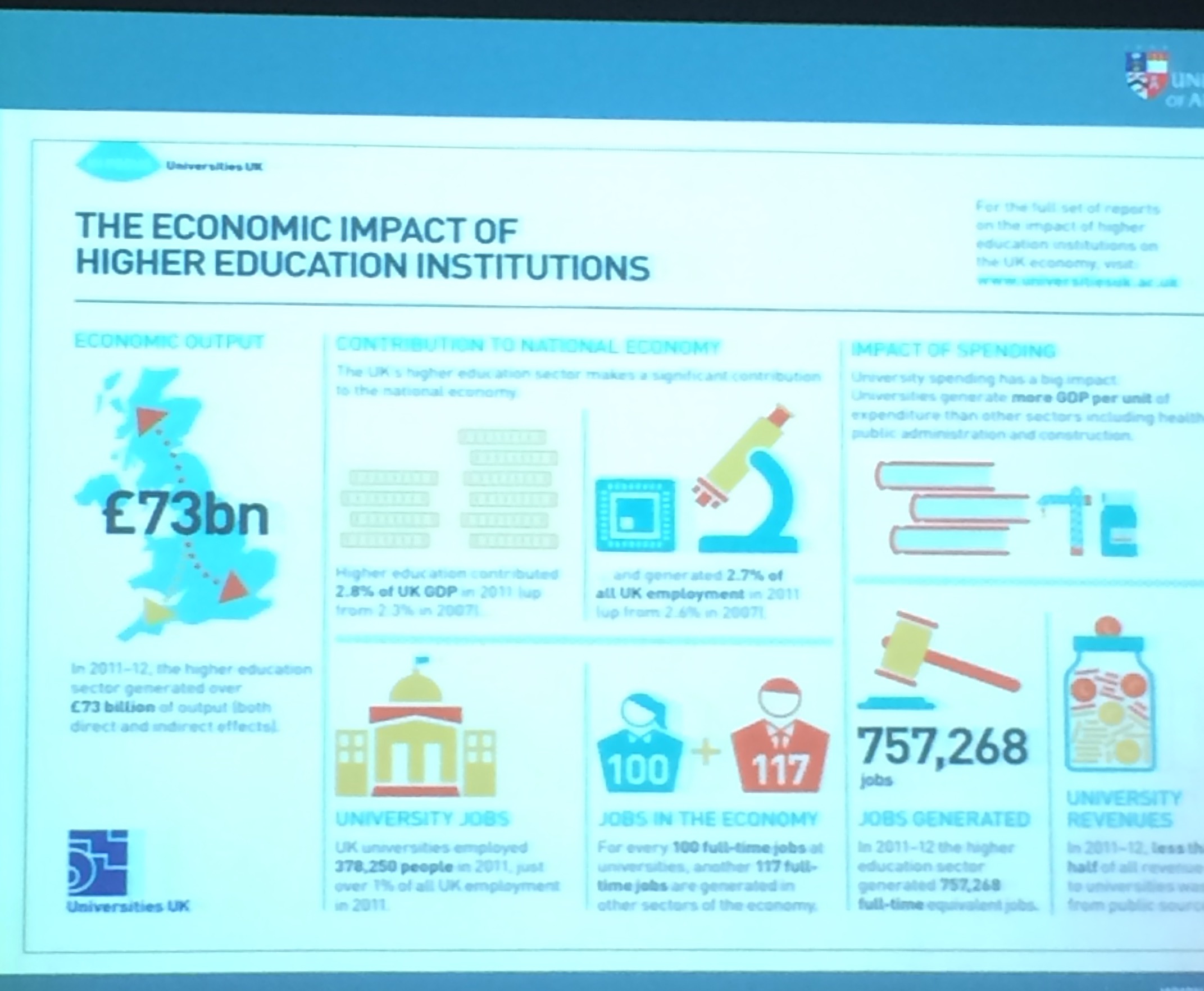February 2015 and I’m at Loughborough working with the Higher Education Strategic Planners Association (HESPA) conference #hespa15
Usual caveat – I’m blogging live from sessions so please treat as such!

This is really exciting for many reasons, not least HESPA members are a key stakeholder for a project I’m working on with HESA (Higher Education Statistics Agency). We’re developing Business Intelligence (BI) Services for UK Education and Research. HESA colleagues and I are presenting a workshop on day 2 and making a couple of announcements (these will be broadcast by @jisc and @hesa using the tag #hesajiscbi)
I blogged my first HESPA Conference this time last year and followed up discussing the project vision with the HESPA Executive. This is us a year on presenting at the event and gaining input going forward from delegates. All good stuff.
Session 1
John Foreshaw Director of Planning University of Salford
Key to this was an indication that the conference has grown. Some of the higher profile speakers including Professor Sir David Willetts (last year) and Professor Sir Ian Diamond this year (of the Diamond Review and report Efficiencies and Effectiveness in HE – something Jisc and I worked on implementing with UUK and others developing http://www.efficiencyexchange.ac.uk (Jisc and UUK continue to work on this and Diamond 2 – the UK Efficiencies and monitoring group). Also a big push on HEDIIP, the programme Andy Youell is Directing aiming to optimise the Higher Education Information Landscape. Also a key one for the bI project I’m representing.
Planners are a varied bunch coming from finance, administration and data analysis.
Session 2
HE – Challenges for Planning and Planners – Professor Sir Ian Diamond
Planning and strategic planning is essential and should be on the forefront of University Executive bodies. UK Universities are a national success story and seen as the most efficient in the world.

The change of capital funding from the finding councils vs capital from sale loans and other sources is a big shift in making Universities responsible for income generation to meet their needs. This could with the decline in research funding from public sources (dramatic) and the importance of Europe.
Is the financial future rosy? Sadly not. With the election in May and likelihood of Conservative or Labour power of some sort both are committed to deficit decrease. It’s going to be ever more difficult to maintain funding levels for HE. Removing students from the immigration figures is imperative but not yet addressed. In Scotland and Wales elections are in 2016 so expect changes there to reflect deficit aspirations. The tension between FE and HE needs resolving – UK needs more graduates and more apprentices and more professional apprentices.
Jisc are working across HE and FE and we’re hoping to ensure FE benefit from our new BI services. Ian touched on the importance on procurement highlighting Jisc as the largest VAT Cost saving service. Ian called for one version of truth, the prevalence of low BI maturity characteristics – another area Jisc and HESA are collaborating on RE National shared services.
Key areas for improvement;
1. Delivering value from the estate (AUDE led) – significant income generation and efficiency gains, extending study times enhances the student experience etc. Probably a lot we could surface here as part of the BI project and this sis a theme for our workshop.
2. Asset and equipment sharing – good evidence but Ian calls for a robust set of metrics to evaluate the impact. An area our BI project could make impact in.
3. HR – staff information is a key topic for our BI service with ESA holding much of the data
4. Creating value from open data – Jisc is involved in the Open Data Initiative at Southampton (highlighted by Ian) and open data is a key area for R&D as part of the BI service
5. An efficient and sustainable research base – Bi could contribute to the case for investment in the research base, efficiencies for research funding and sustainability of the research base, develop metrics for a wider set of efficiencies from the research base – BI Service again
6. Evidence progression in efficiencies – savings from research, procurement, shared services should be collated – BI Service again
These map quite nicely to the HESA / Jisc BI initiative https://business-intelligence.ac.uk so good to see we’re on the right lines!